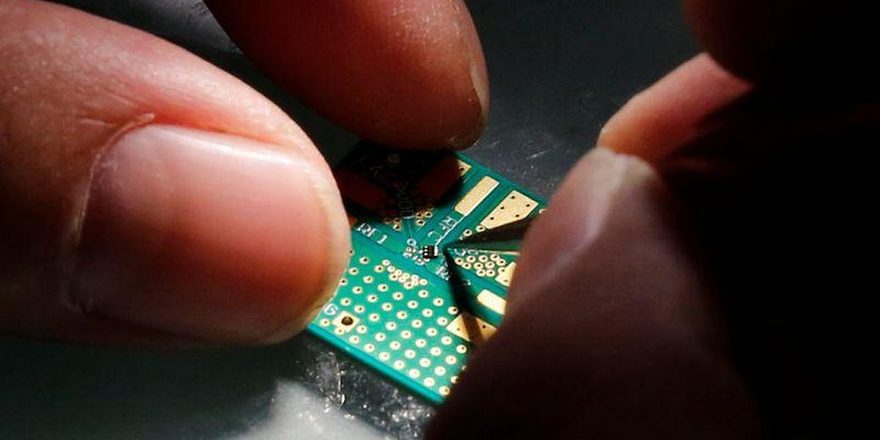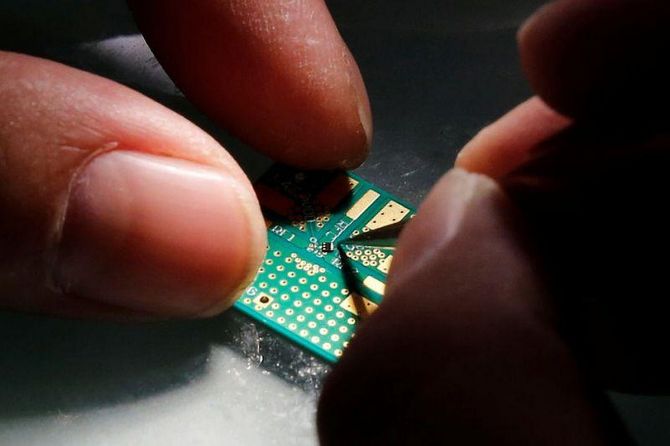Taiwan makes 75% of all chips used for Indian mobiles
Foundries in Taiwan account for more than 75 per cent of the chips that mobile devices made in India need, according to estimates by the Indian Cellular and Electronics Association (ICEA), which represents global and domestic manufacturers.
The number is slightly lower, 60 per cent, if one considers all chips — those of consumer electronics, PCs, laptops, autos, etc.
This ties in with the fact that foundries in Taiwan, led by TSMC, account for over 70 per cent of the world’s microchip supply, according to estimates by Gartner.
It is in this context that the government’s semiconductor policy, based on Atmanirbhar Bharat, needs to kick off faster because it could lead to one to two fab units being set up in the country, reducing its dependence on import.
Nations are assessing the impact of disruption in supply chains relating to semiconductor chips if there is a blockade of the country by China, especially after tensions between the two aggravated following the visit of US House of Representatives Speaker Nancy Pelosi to Taiwan.
Pankaj Mohindroo, chairman of the ICEA, said: “The three prominent chipset suppliers for mobile devices in India are US-based Qualcomm, Taiwan-based Mediatek, and Unisoc (from China). Fabrication in Taiwan would be more than 75 per cent.”
Many mobile device makers said at an individual level it was even higher.
For instance, a domestic EMS (electronic manufacturing service) player said it estimated it to be as high as 90 per cent.
Satya Gupta, former chairman of the India Electronics and Semiconductor Association (IESA), said: “We are dependent on Taiwan across all segments and our estimates are it would account for 50-60 per cent of all chips used in the country.
“So global fabless companies like Qualcomm, Broadcom, AMD, and NVidea, which supply to India, use Taiwanese fabs.
“Even fabless Indian start-ups are dependent on TSMC and UMC.”
India is a big user of chips and that will only increase once 5G services roll out and new use cases from robotics, machine-to-machine communications, and other IOT (internet of things) solutions come up.
The growth of electric vehicles, which are powered with numerous chips, will add to this.
According to the IESA, India consumed chips worth $27 billion in 2021 and this is projected to grow at a compound annual growth rate of 16 per cent to hit $64 billion by 2026.
Any disruption will have consequences, especially at a time when the shortage due to the pandemic has not normalised in areas like the auto industry.
A leading global chip-design company said most of them hedged their bets by going to two to three foundries rather than depending on only the Taiwanese.
So the impact will depend on what percentage of the chips is made in Taiwan.
The foundry business (it contract-manufactures chips for third parties) in 2021 was dominated by Taiwan, according to TrendForce.
It accounts for 64 per cent of the revenue share (with TSMC accounting for 53 per cent, followed by UMC at 7 per cent), followed by Samsung with 18 per cent, US-based GlobalFoundries (6 per cent), and China’s SMIC (5 per cent).
Taiwan has a dominant position in manufacturing cutting-edge logic chips also.
The top executive of a global chip-design company said: “It is possible to shift capacity from Taiwan to other players or same players in other locations.
“But the process of transition, re-designing to fit in the chip in a new foundry, will take at least two years. It could take a little less for the higher nanometere chips.”
Source: Read Full Article


